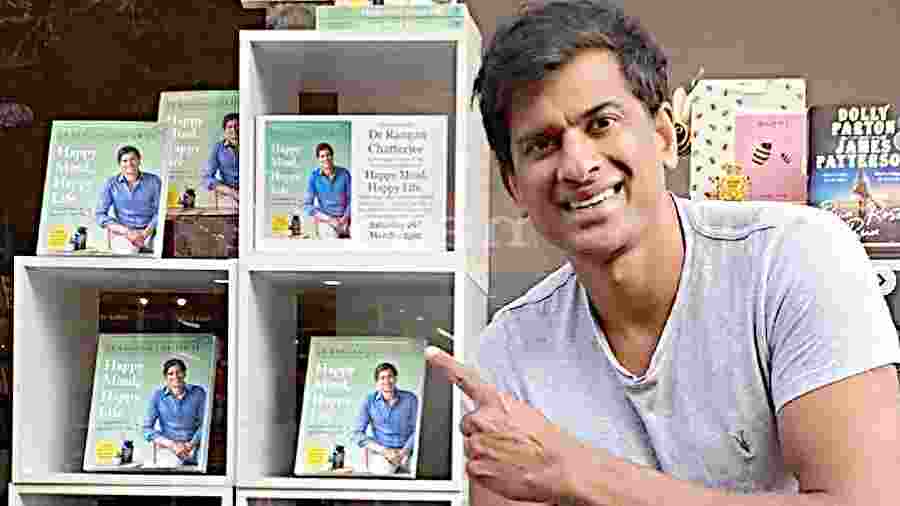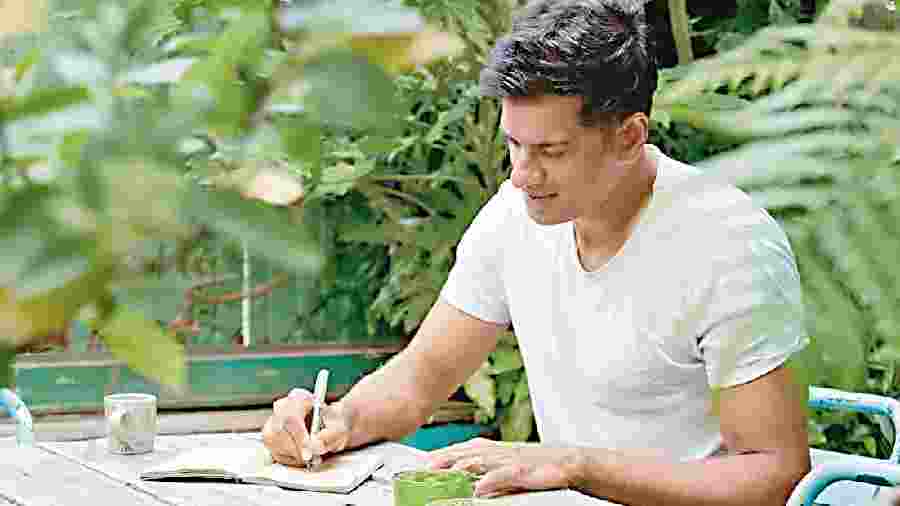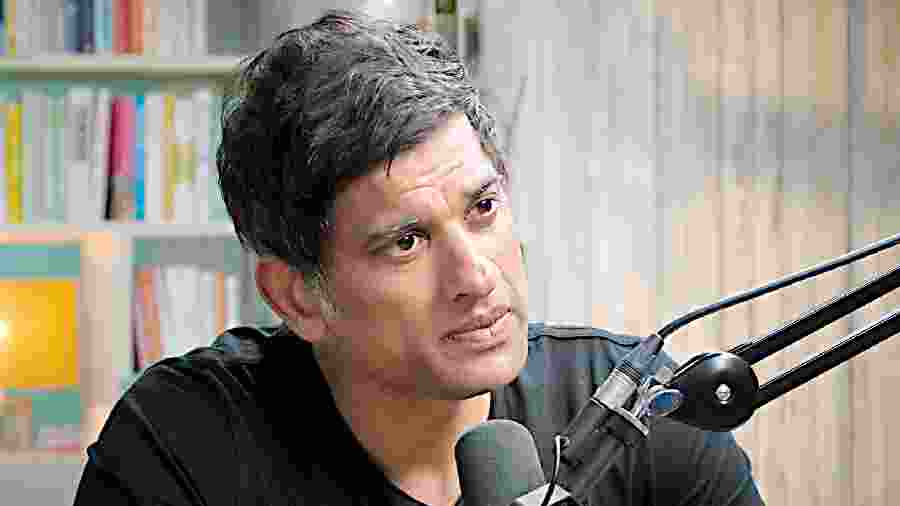Making the most out of less is an art, especially if it’s time we are talking about. Dr Rangan Chatterjee knows it well. Britain loves two doctors. The first is Doc Martin, the titular character from the popular TV show, who keeps the people of the fictional seaside village of Portwenn in shape. Then there is Chatterjee, the doctor of Indian origin whose father, the late Dr Tarun Chatterjee, left Kolkata in the 1960s and soon became a consultant at Manchester Royal Infirmary
The medical doctor for over two decades is a household name in Britain (and beyond) for his numerous books and two podcasts, titled Feel Better, Live More and Built to Thrive (on Amazon Music). Such has been the success of Built to Thrive, there is now a second season of the show. He is, of course, also known for his time on BBC Breakfast and as a regular commentator on BBC Radio. At the moment, it’s his books and podcasts that are important to him. Feel Better, Live More has been the number one health podcast in the UK and Europe with over 1.5million people watching and listening each week. Built to Thrive has a completely different approach because it’s a five-minute nugget that’s delivered Monday through Friday.
He strongly believes that it takes only five minutes each day to change one’s lifestyle. It’s as simple as exercising five minutes while the coffee is brewing; it’s something he has been doing for years. The importance of having a healthy lifestyle is of prime importance. His father led a busy life, coming home mostly to have dinner and change before leaving for the hospital to put in long hours. He barely slept and ultimately he was diagnosed with lupus from which it was a downward spiral. So, for Chatterjee Junior, health is wealth.
We recently caught up in New Delhi for a quick chat about how to best utilise five minutes.
Why do you think your podcasts have been so successful?
A lot of people listen to my main podcast, Feel Better, Live More, which has been on for many years now. It’s long, deep conversations. People around the world enjoy these deep dives. Then there is the Amazon podcast, Built to Thrive, which is five minutes a day. It’s catering to different people with different amounts of time and desire to listen.
So what is it that I’m excited about? As an Indian guy, I’ve always wanted to come and spread my message in India. The books and the podcasts do very well in the UK and America and all over Europe. India is in need of good quality health advice. People are getting larger, type 2 diabetes is on the rise and there are people who struggle with mental health. We are falling into a lot of the traps that exist in a capitalist society, like working more, trying to acquire more things. A lot of the time it makes us feel stressed and stress leads to a lot of complications. My message is that health has been overcomplicated. I think one of the reasons my message seems to resonate with people all over the world is because I simplify things. I understand people are busy, they have work pressures, family pressures, maybe they have old parents. But I’m convinced that dedicating even five minutes a day towards health can be transformative.

Rangan has written several books that are popular globally
How can you spread the message?
There are many ways you can influence people’s health. But one thing I’ve learned is that people don’t like to be told what to do. I don’t like to be told what to do. My patients don’t like to be told what to do. So I never tell people what to do. My goal is to share stories and hopefully inspire people so they want to take action. If people listen to the information and choose not to take action, I’m okay with that; everyone has the right to live their lives how they want.
I can spread the message one-onone with a patient, but 80 to 90 per cent now of what a doctor sees in the UK — also in India — is in some way related to our collective modern lifestyles. We have to understand that it’s not just weight and type 2 diabetes; it’s also about, say, the risk of dementia when we get older. I shouldn’t say all (problems) are mostly related to the way that we’re living. We’re eating too much rubbish. We’re not moving enough. We’re not sleeping enough. And we’re chronically stressed and switched on a lot of time because of these things. The point I’m trying to make is that the way people are feeling is caused by our lifestyle. So actually the best way to treat it is also with our lifestyle. A lot of people say lifestyle is about prevention.
How can you change your health by dedicating five minutes towards it?
I am married and my elderly mother lives a few minutes away from me, and my dad has passed away. I know what it means to be busy. I have a demanding job and I have a lot of responsibilities in my personal life. Sorry. I don’t go to the gym regularly but I still keep in good shape. How? I’m not against gyms. What I do is every morning while I’m making my coffee… my coffee brews for five minutes. In those five minutes I don’t get on email or Instagram; I do a five-minute strength workout in my pyjamas in my kitchen. Now that’s five minutes a day, which means it’s 35 minutes a week. But the reason I have rarely missed it a day in years is not because I have more motivation than you or anyone reading this article.

The popular podcaster believes that following easy, achievable goals when it comes to behaviour change is more fruitful
When it comes to health, we think we need to visit the gym for an hour. There’s nothing wrong with that. But you don’t always have to. The best analogy I give people is brushing one’s teeth. Nobody says: ‘I am too busy to brush my teeth today and on Sunday I will do a deep clean.’ Instead of looking for that one-hour yoga session, do five minutes of yoga every day, or five minutes of strength working.
Let me give you the two rules of behaviour change. One, make it easy. Everyone thinks motivation is enough to change one’s behaviour. It’s not. If you make your new health plan really difficult, sure you’ll do it when your motivation is high. But on those days when there’s a lot of work or you’ve been travelling, you can’t do what you had planned. If it’s too hard, you will never do it. You should make your health plan practical. I exercise five minutes a day. Some days, I’ll do for 15 minutes and that’s fine. But the minimum is five minutes because it feels achievable.
Rule number two, every behaviour in life needs a trigger. What triggers your memory? To meet you today, I could have just relied on my memory. The next best trigger is a notification. Let’s say your Google Calendar pops up, I have to meet you today. But the best trigger is when we put a new behaviour onto an existing habit. I make coffee every morning. I don’t need my assistant to phone me and remind me to make coffee. I stick to my five-minute exercise routine while making coffee. Because I’m going to make coffee each morning and I will stick to my workout every single morning, seven days a week, yes even on a Sunday.
You have had patients following the five-minute routine?
I once had a patient who was struggling with menopausal symptoms. I felt stress was driving a lot of them. She had a weight problem and was struggling with sleep. She said she didn’t have the time. I asked her if she had 10 minutes to spare each day. Finally, she agreed to one minute. And she started with one minute of yoga a day. After a week, she felt calmer. And then within four weeks, she was doing 15 minutes a day. Not because I asked her to. If you set the goal high and manage it for two-three days before failing, you will not feel motivated.
The Amazon podcast works because it’s only five minutes a day. In the UK, some mothers listen to it while they’re taking their kids to school. Five minutes a day feels achievable.
Anything else to make one feel good?
The power of gratitude. Spend five minutes each day to look at the positives in your life. I have enough to buy food today. I have enough for a roof over my head. My wife and I play this game with our two kids every night at the dinner table. What’s one thing I’ve done today to make somebody else happy? What’s the one thing somebody else has done today to make me happy? It’s simple. It doesn’t take long to play this game. Since we do this over dinner, I don’t need to find extra time. You will feel better afterwards and you will learn things about the people around you. You don’t have to make it hard or difficult.

